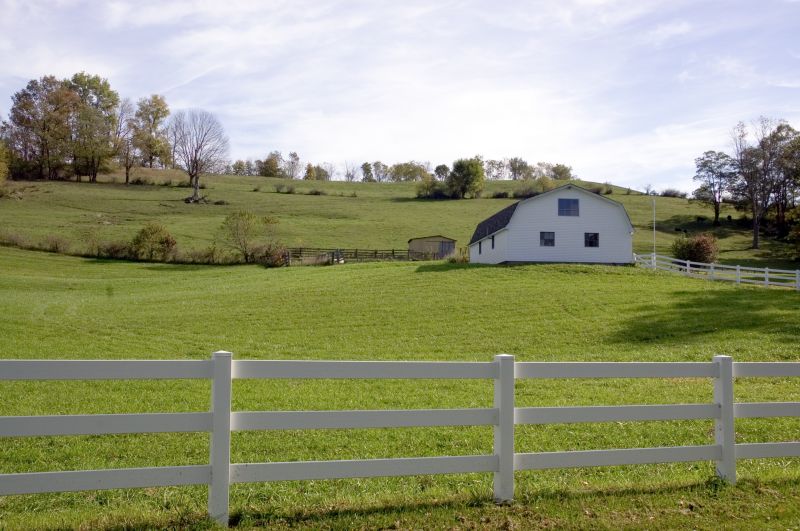Expert Picks for Reliable Split Rail Fencing Materials and Accessories
Find out which split rail fencing products professionals recommend for long-lasting performance and easy installation.
 Split rail fencing is a classic and versatile fencing option that has been used for centuries to define boundaries, contain livestock, and enhance the aesthetic appeal of rural and suburban properties. This type of fencing typically consists of horizontal rails that are supported by vertical posts, creating an open and rustic appearance. The materials used for split rail fencing can vary, including wood, vinyl, and composite options, each offering different maintenance requirements and visual effects. Properly selected products can help ensure durability, safety, and a pleasing look that complements the landscape.
Split rail fencing is a classic and versatile fencing option that has been used for centuries to define boundaries, contain livestock, and enhance the aesthetic appeal of rural and suburban properties. This type of fencing typically consists of horizontal rails that are supported by vertical posts, creating an open and rustic appearance. The materials used for split rail fencing can vary, including wood, vinyl, and composite options, each offering different maintenance requirements and visual effects. Properly selected products can help ensure durability, safety, and a pleasing look that complements the landscape.
Top Overall Option
Wooden Split Rail Fence Kit
A wooden split rail fence kit offers a traditional and customizable fencing solution that can enhance the rustic charm of any property. These kits typically include pre-cut rails and posts designed for straightforward assembly, making them suitable for DIY enthusiasts. The natural appearance of wood allows for various finishes and treatments, enabling you to match your landscape aesthetic while providing a durable barrier. Proper selection of quality wood and hardware can help ensure the fence withstands weather conditions and maintains its appeal over time.
Types of Products For Split Rail Fencings
Wooden Split Rail Fencing
Traditional wooden rails and posts crafted for easy assembly and customizable finishes.
Vinyl Split Rail Fencing
Low-maintenance vinyl options that mimic the look of wood with added weather resistance.
Composite Rail Fencing
Durable composite materials combining the appearance of wood with enhanced longevity.
Metal Posts and Rails
Steel or aluminum components offering strength and modern aesthetic options.
Decorative Split Rail Fencing
Enhanced designs with decorative elements for aesthetic appeal in landscaped areas.
Eco-Friendly Wooden Rails
Sustainably sourced wood options designed for environmentally conscious projects.
Pre-Assembled Rail Sections
Ready-to-install sections that simplify the fencing process for DIYers.
Customizable Post Caps
Decorative and functional caps to enhance the look and durability of fence posts.
Temporary Split Rail Fencing
Lightweight and portable options suitable for short-term use or events.
Heavy-Duty Rails
Reinforced rails designed for high-traffic or livestock containment.
Rust-Resistant Hardware
Corrosion-resistant connectors and fasteners for long-lasting assembly.
Post Anchors and Bases
Support systems for secure and stable fence installation on various terrains.
Popular Choices
Classic wooden rails available in various sizes and finishes for traditional fencing.
Maintenance-free panels that replicate the appearance of wood with added durability.
Composite rails that come ready to install with minimal upkeep.
Strong, corrosion-resistant posts suitable for various fencing styles.
Half-round wooden rails providing a traditional and textured appearance.
Stylish caps that add character and protection to fence posts.
Flexible hardware for aligning rails and posts accurately.
Accessories for adding containment or security features to split rail fences.
Corrosion-proof nails, screws, and bolts for long-lasting assembly.
Lightweight posts designed for easy repositioning and temporary fencing needs.
Reinforced rails suitable for livestock enclosures and high-traffic areas.
Sustainable wood options that maintain the rustic look with responsible sourcing.
When choosing products for split rail fencing, considerations such as material quality, ease of installation, and resistance to weathering are important. Wooden rails provide a traditional look but may require regular maintenance, while vinyl and composite options often offer lower upkeep and increased longevity. The style of the rails—whether round, square, or half-round—also influences the overall aesthetic and functional suitability for different environments. Additionally, the hardware and posts used to assemble the fencing play a crucial role in ensuring stability and safety.
Installation methods can vary based on the product type, with some systems designed for easy DIY assembly and others requiring professional installation. It is essential to select products that match your specific needs, whether for decorative purposes, livestock containment, or property demarcation. Proper planning and understanding of the different product variations can lead to a more satisfying fencing project, providing both functional benefits and visual appeal. Regular maintenance and inspection will help prolong the lifespan of your split rail fence, keeping it looking attractive and performing well over time.
Key Buying Considerations
- Material durability and resistance to weathering effects.
- Ease of installation, whether DIY or professional setup.
- Compatibility of rails and posts for seamless assembly.
- Aesthetic style and whether it matches your landscape or architecture.
- Maintenance requirements and longevity expectations.
- Type of wood or alternative materials used.
- Hardware quality, including fasteners and connectors.
- Cost and overall budget for the fencing project.
- Environmental factors such as exposure to moisture or pests.
- Size and dimensions of rails and posts suitable for your needs.
- Availability of customization options like post caps or decorative elements.
- Compatibility with existing fencing or landscape features.
- Safety features, especially if containing children or animals.
- Warranty or guarantee offered by the supplier.
- Local building codes or HOA regulations related to fencing.
